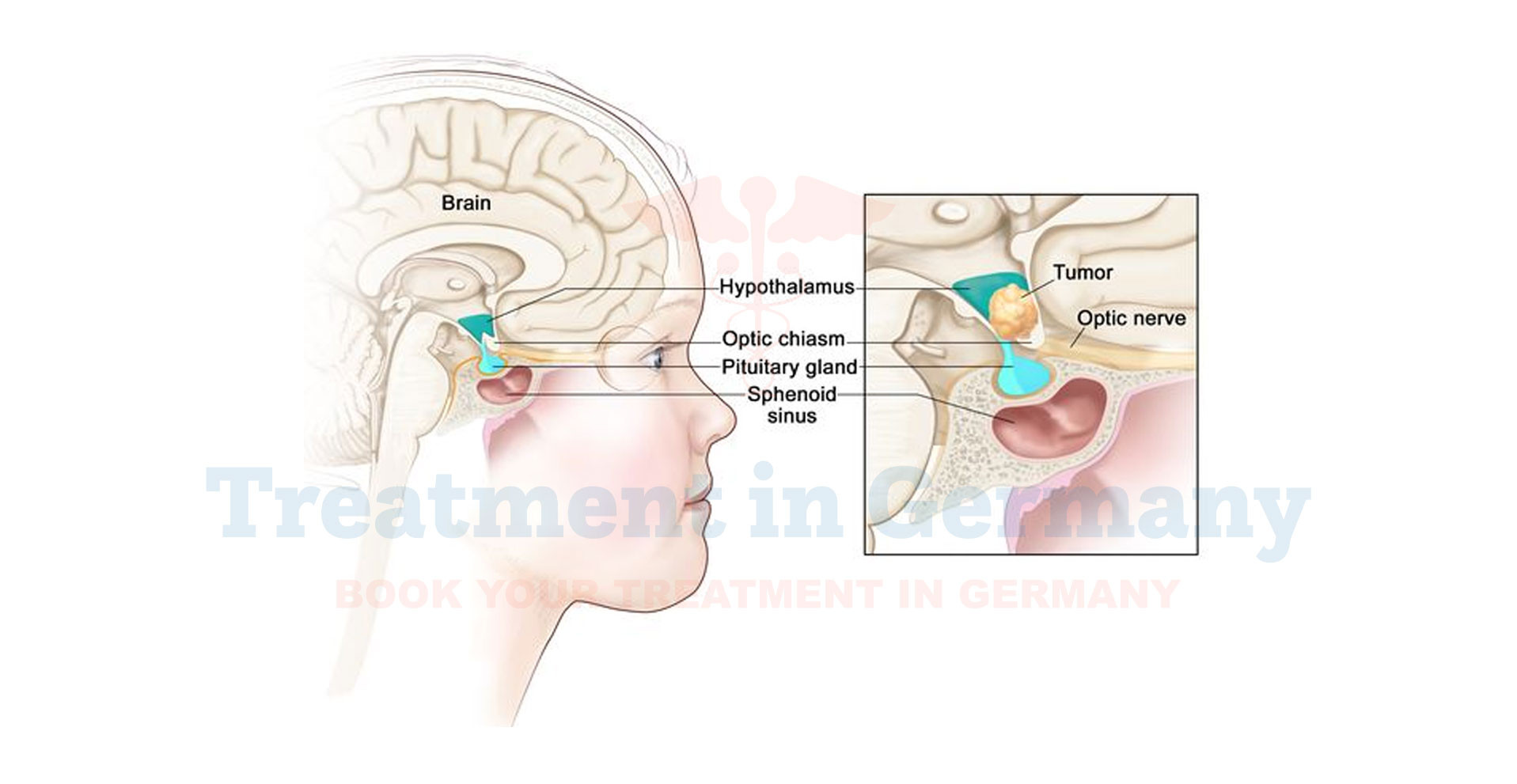What is Craniopharyngioma?
Craniopharyngioma is a rare type of brain tumor that develops near the pituitary gland, which is located at the base of the brain.
This type of tumor is typically non-cancerous (benign) but can cause significant health issues due to its location and the structures it affects.
Side Effects of Craniopharyngioma
The symptoms and side effects of craniopharyngioma can vary depending on its size and location. Common symptoms may include:
- Vision problems, such as blurred vision or loss of peripheral vision
- Headaches, often severe and persistent
- Endocrine problems, which can lead to hormonal imbalances affecting growth, metabolism, and fertility
- Cognitive changes or behavioral issues, especially in children
- Other neurological symptoms like nausea, vomiting, and difficulty with balance
How is Craniopharyngioma Diagnosed?
Diagnosing craniopharyngioma usually involves a combination of imaging tests and a biopsy. The following steps may be involved in the diagnostic process:
- Imaging Tests: MRI (Magnetic Resonance Imaging) and CT (Computed Tomography) scans are commonly used to locate and visualize the tumor.
- Hormone Testing: Blood tests may be conducted to assess hormone levels, as craniopharyngiomas can affect the pituitary gland and disrupt hormone production.
- Biopsy: In some cases, a small sample of the tumor may be removed and examined under a microscope to confirm the diagnosis.
Potential Treatments for Craniopharyngioma
Treatment options for craniopharyngioma depend on several factors, including the tumor size, location, and the patient's overall health. Possible treatments may include:
- Surgery: Surgical removal of the tumor is often the first-line treatment if the tumor can be safely accessed without causing significant damage to surrounding brain structures.
- Radiation Therapy: This may be used before or after surgery to target any remaining tumor cells and reduce the risk of recurrence.
- Hormonal Therapy: Replacement of hormones that are deficient due to damage to the pituitary gland.
- Clinical Trials: Participation in research studies investigating new treatments may be an option for some patients.
👉 Contact us for further information and receive a complimentary consultation.


.webp)
 (1).webp)

.webp)
 (1).webp)


.webp)
 (1).webp)

.webp)
 (1).webp)
